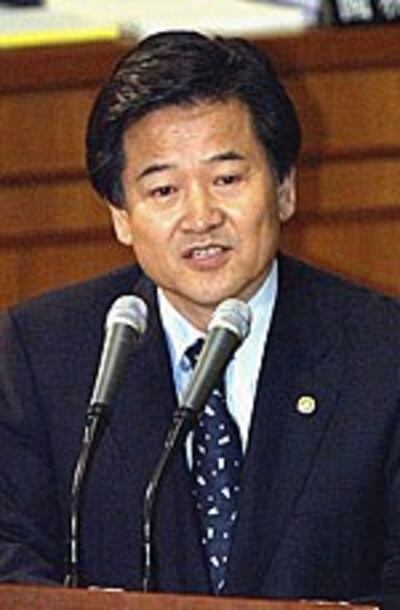
SEOUL—South Korea's Unification Ministry is drafting legislation that would allow North Korean defectors to divorce in absentia spouses left behind in the tightly closed North, so they would be able to marry again.
The government will introduce the measure in September as an amendment to the Protection and Resettlement for North Korean Defectors Act. Analysts expect it the provision, aimed at giving defectors a greater psychological foothold in the South, to pass easily.
“Currently, there are 7,000 defectors living in South Korea,” said Kim Oak-Ae, a counselor at the Hanawon Resettlement Center near Seoul and, unusually among resettlement staff, a defector herself. "Two-thirds of those are women. The majority are in their 20s and 30s. Most are single or travel without their spouses.”
Kim said she counsels some 30 defectors a day and is often asked about marriage arrangements. "Many ask if husbands left behind in China can be brought to South Korea," she said.
No communication with the North
North Koreans most commonly flee their Stalinist country across the Chinese border, and subsequent communication with spouses in North Korea is generally impossible.
There are 7,000 defectors living in South Korea. Two-thirds of those are women. The majority are in their 20s and 30s. Most are single or travel without their spouses.
The new law would allow defectors to file for divorce in South Korea without obtaining written consent from left-behind spouses. Divorce proceedings could go forward three years after a defector is granted South Korean citizenship.
Current law prohibits citizens from remarrying without going through formal divorce proceedings, and it recognizes legal marriage in North Korea. But a surge in the number of North Koreans defecting here since 1995 has forced this issue onto the public agenda.
“Now that an increasing number of North Koreans come to live in South Korea, we should come up with necessary legislation to protect their right to pursue happiness here," Lee Key-young, chief of the Supporting Team for North Korean Defectors in the Korean Bar Association, was quoted as saying earlier this year.
Fewer than 10 North Koreans defected annually to the South before 1994, but that number has soared since then—from 148 in 1999 to 1,281 in 2004.
Poignant cases
The Seoul District Family Court had reportedly reviewed 88 such cases as of October of last year.
Now that an increasing number of North Koreans come to live in South Korea, we should come up with necessary legislation to protect their right to pursue happiness here.
In one such case, a North Korean woman fled to China to escape her husband’s frequent drinking and physical abuse. She met a North Korean man in China and moved in with him.
The couple moved to South Korea together in March of 2003. A year later, the woman filed for divorce from her North Korean husband so that she could officially remarry—but her request was denied.
In another case, a North Korean woman sought to divorce her husband after he was arrested in China and sent back to North Korea. She argued unsuccessfully that her husband’s 13-year jail sentence in the North prevented her from resuming a normal married life.
In February, Seoul District Family Court ruled in favor of another North Korean defector who filed for divorce from her husband who still lives somewhere in the North—allowing her to remarry. It was the first such divorce since the Koreas were divided in 1953.
